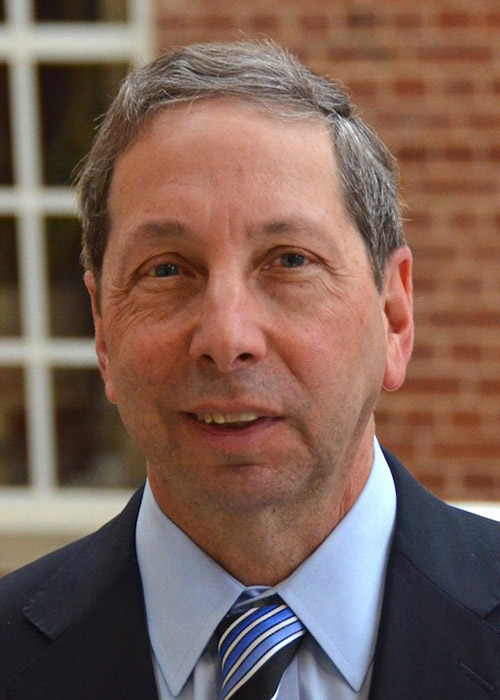Pandemic lessons
Carolina experts describe what defines a pandemic and some lessons learned about communication, trust and reaction when disease spreads.

Hand washing, social distancing and liberal use of disinfectants will help stem the spread of the COVID-19 virus. But as policies and practices evolve, the most important asset in controlling a disease’s spread is the public’s trust, according to Jim Thomas, associate professor of epidemiology in Carolina’s Gillings School of Global Public Health.

Jim Thomas (Photo courtesy of Gillings School of Global Health)
Thomas, who formerly served as an ethics adviser to the director of the Centers for Disease Control and Prevention (CDC), studies how governments behave ethically toward citizens and public health professionals and says that past worldwide outbreaks of communicable disease have provided valuable lessons. For example, during the 1918 flu pandemic, politicians and military officials prioritized ending World War I over preventing the spread of the disease, which ultimately killed an estimated 675,000 Americans.
“They downplayed the extent of the epidemic and the necessary precautions,” Thomas said. “But there was no hiding reality from the public. They were experiencing the reality of the epidemic. The difference between what the public experienced and what they were being told by the national government created confusion and distrust.”
Today, Thomas said, information is so readily available that we are watching the COVID-19 virus pandemic unfold unvarnished.
“Accurate information is our best protection against overreaction or denial,” Thomas said. “To maintain the trust of the public and the effectiveness of its institutions, it will be critically important for the messages of federal, state, and news agencies to be the same and to reflect reality.”
What defines a pandemic?

David Weber (Photo courtesy of UNC School of Medicine)
On March 11, with cases in 100 countries, the World Health Organization officially characterized COVID-19 as a pandemic, confirming sentiments expressed by medical and public health professionals, including Dr. David Weber, professor of medicine, pediatrics and epidemiology at the UNC School of Medicine.
Weber describes a pandemic as the spread of a new disease with sustained transmission on more than one continent, or a known disease with an outbreak, meaning a sharp increase in cases on more than one continent.
He also sees lessons learned from past pandemics, mainly: “It’s always better to be prepared than reactive.”
Lessons learned
Healthcare and public health professionals have learned from past outbreaks, such as the 2014 Ebola epidemic when hospital workers in Dallas did not properly screen a patient and sent him home despite his being infected with Ebola. Weber said that case illustrates the importance of healthcare workers strictly following CDC guidelines for screening patients.
While the flu is currently more widespread than COVID-19, a few factors make COVID-19 worrisome to public health officials. First, while seasonal flu symptoms may appear with three days, according to the CDC, the estimated incubation period for COVID-19 is five to six days, enabling people to carry and share the disease without knowing it. Mortality for COVID-19 is not fully understood, but CDC data indicate that it is somewhere between three and four percent, much higher than the flu’s 0.1%.
The CDC’s latest guidance (March 11) for public preparedness emphasizes existing best practices of washing hands, staying home when you are sick, limiting movement in your community and interaction with visitors and consider obtaining a two-week supply of food and your prescription medicines.
Weber echoes those preventative measures.
”Cover your mouth and nose when sneezing or coughing, clean hands frequently with hot water and soap or an alcohol-based cleanser, stay home if you are sick and see a health care provider if you are concerned,” he said.
How we interact may change. Thomas said that we will think twice about usual greetings ─ shaking hands, hugs, kisses.
“That’s hard to stop because you feel like you are being rude or inconsiderate and not behaving as expected,” he said.
Don’t panic
Past pandemics also teach us not to panic, Thomas said.
“Panic can cause unsavory, unethical behavior,” he said. “We’ve seen scapegoating in previous pandemics, and we’ve seen evidence of scapegoating of Asians lately because the epidemic was first evident in China.”
People should be prepared, not worry, at this point, Thomas said, and be cautious about transmitting germs.
“The people who are responsible for official responses in hospitals and public health departments, of course, need to think ahead, prepare and consult with each other,” Thomas said. “That’s their job. But for the rest of us, it’s just usual measures that we would take in hand-washing and covering our mouths when we sneeze and if we’re sick, not going to work and staying back so that we don’t transmit to others.”




